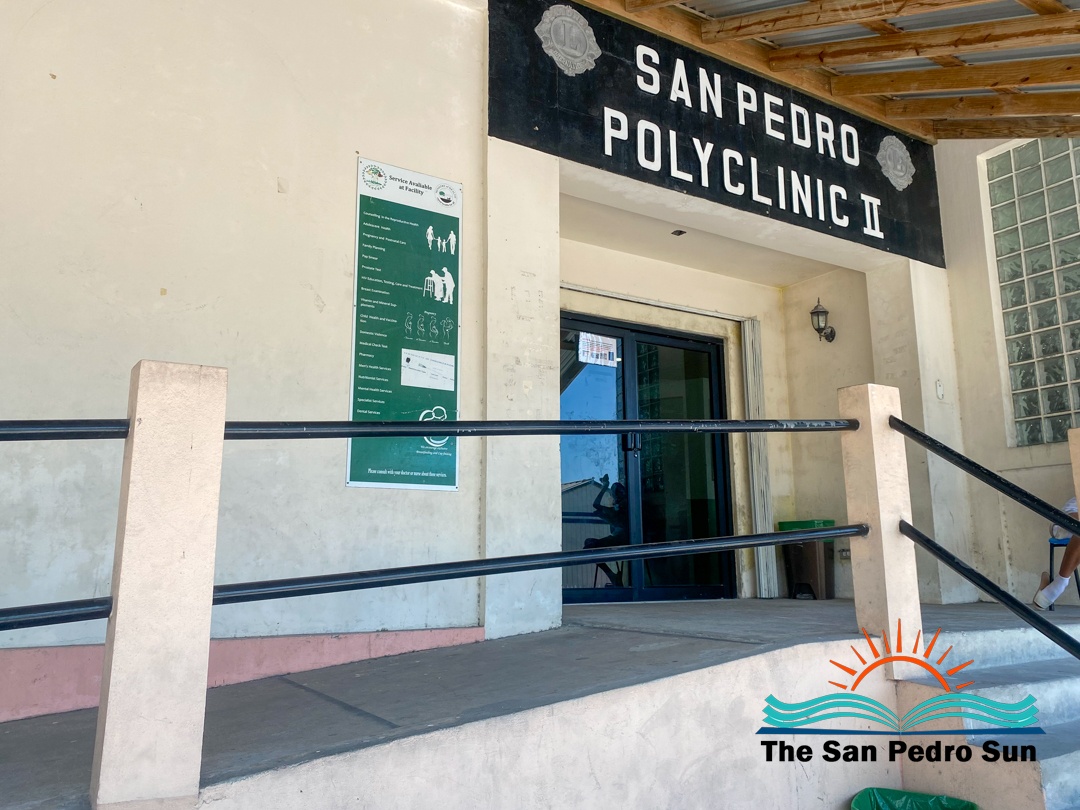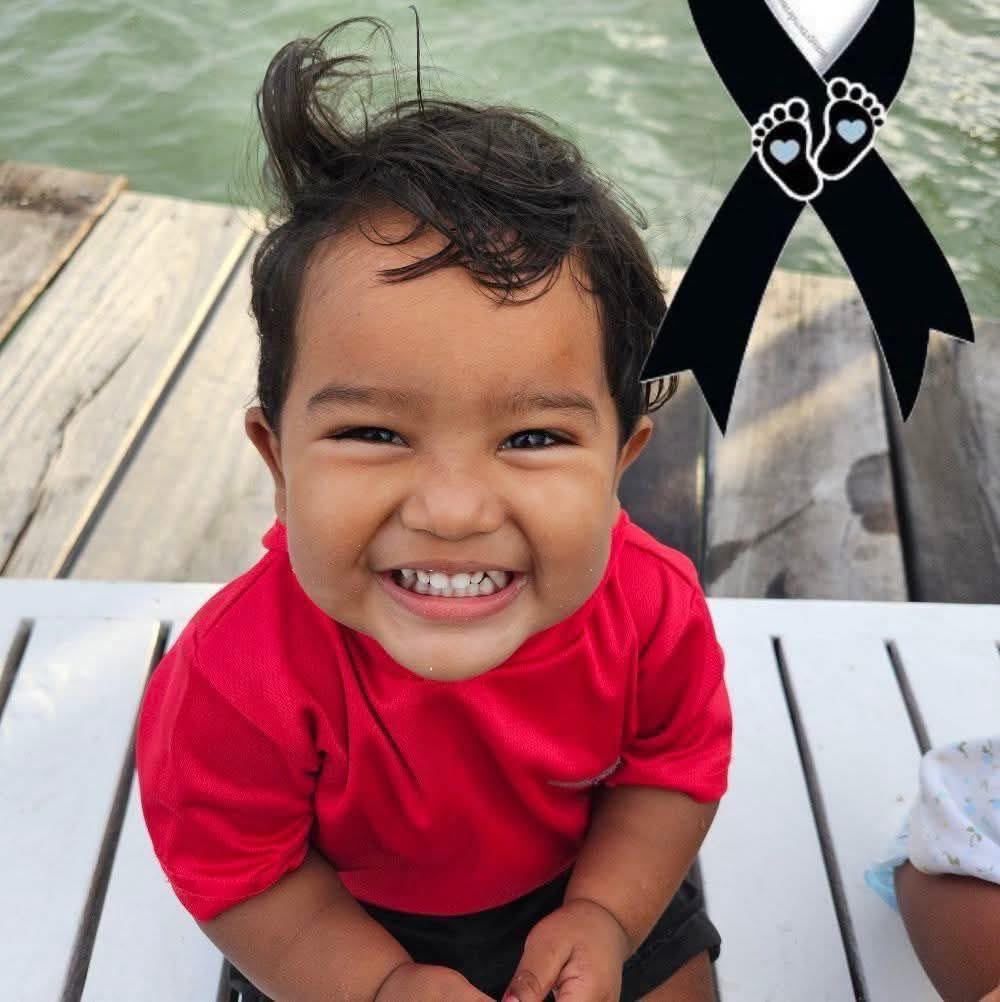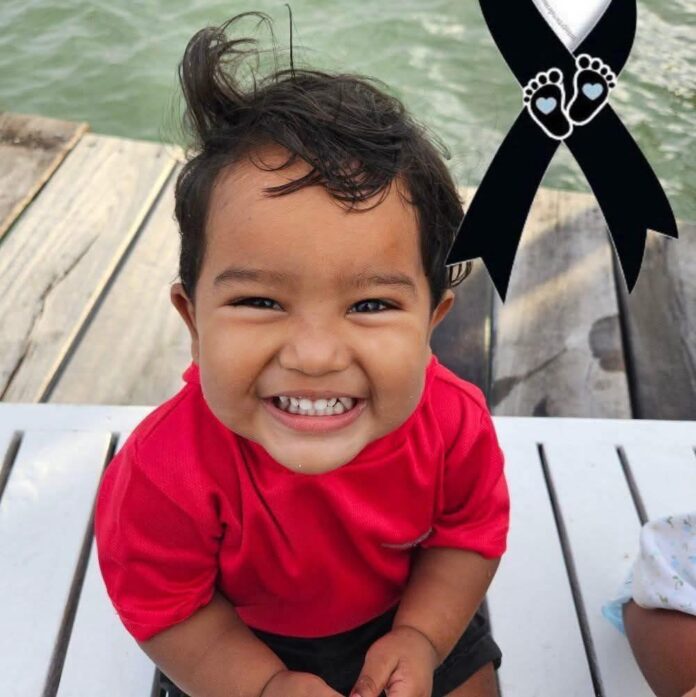It has been three weeks since the death of two-year-old Kaleel Nah. The toddler had been ill for days before he died on September 3, 2025, while en route to medical care in Belize City on a water taxi. At the time, his death was believed to be caused by severe dehydration, but an autopsy revealed the cause was acute respiratory failure, with tests confirming he had been infected with swine flu. An investigation is underway to determine whether there was negligence on the part of staff at the Dr. Otto Rodriguez San Pedro Polyclinic II.
During his Independence Day address, Area Representative Honorable Andre Perez commented on the tragedy, assuring residents that there will be accountability if negligence is confirmed. “We are all moved by the pain and loss of this family, who should have never had to experience such a tragedy,” Perez said. “I can assure you that there is an internal investigation underway to find out if this was because of negligence, if so, this will not go without repercussions.”
Nah’s family believes medical staff at the polyclinic could have done more to save his life. They also said an air ambulance could have been arranged, rather than advising them to take the water taxi to the mainland.

Cause of Death
Police confirmed that the autopsy showed Nah was infected with the swine flu virus. Common symptoms include fever, coughing, diarrhea, and vomiting. Nah’s mother, Virgen Garcia, reported that her son began experiencing fever, cough, and vomiting on August 30th. She said the medication he received at both the polyclinic and a private clinic did not improve his health. “They just gave me medication for vomiting and fever and did not tell what he had,” Garcia said.
When his condition worsened, Garcia explained that medical staff advised them to take him to Belize City. However, the emergency was reportedly not declared, and the family was left to transport him by water taxi. Less than half an hour into the journey, Nah passed away.
Garcia told The San Pedro Sun that they are waiting for the outcome of the ongoing internal investigation. She said they had not seen the autopsy report and had only found out about it in the news. The family does not understand how little Nah could have contracted the flu virus. Garcia added that they hope to hear the result of the probe after the festive month of September.
Swine flu is caused by the H1N1 influenza A virus, which spreads from person to person through respiratory droplets released during coughing, sneezing, talking, or touching contaminated surfaces. Infection occurs when someone touches their face after being exposed to the virus. In rarer cases, people can also be infected through direct contact with pigs, though pigs are not commonly kept on private properties in San Pedro.
No other explanation has been provided as to how the child contracted the virus, and no other cases of swine flu have been reported in San Pedro. Doctors advise that prevention is best achieved through good hand hygiene, avoiding close contact with individuals who are sick, and staying home when ill to reduce the transmission of the disease.
The infection is typically treated with antiviral medications, such as oseltamivir (Tamiflu) and baloxavir (Xofluza), which are most effective when taken within 48 hours of symptom onset. Supportive care, including rest, fluids, and over-the-counter pain relievers, is also recommended. While antibiotics are not effective against the flu virus itself, they may be prescribed for secondary bacterial infections.

Nah’s death has reignited concerns about the shortcomings of Belize’s healthcare system, particularly the lack of emergency services on the islands and in rural communities. Critics argue that the country’s limited resources, understaffed facilities, and frequent delays in emergency response reflect a system failing to keep pace with the needs of its people. The case highlights the urgent need for prompt medical responses, advanced diagnostic capabilities, and reliable emergency transportation for critically ill patients. As the investigation continues, many hope it will not only provide answers for Nah’s family but also prompt systemic reforms to strengthen healthcare and prevent similar tragedies in the future.


